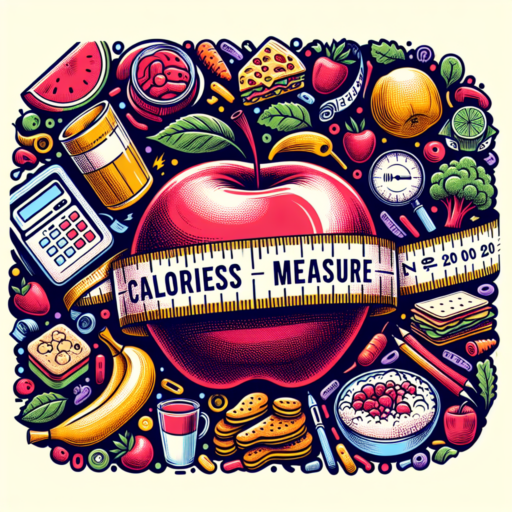How many calories do I naturally burn a day?
Understanding the number of calories you naturally burn each day is essential for anyone looking to maintain, lose, or gain weight. This figure, widely known as the Total Daily Energy Expenditure (TDEE), varies significantly from person to person. Several factors influence your daily calorie burn, including your age, weight, height, gender, and level of physical activity.
Factors Affecting Daily Calorie Burn
At the core, your basal metabolic rate (BMR) is the number of calories your body requires to perform basic life-sustaining functions, such as breathing, circulation, cell production, and nutrient processing. However, the total daily caloric burn is not limited to BMR alone. It also encompasses calories expended through physical activities, ranging from deliberate exercises such as jogging or cycling to involuntary movements like typing or fidgeting. Moreover, the process of digesting food, known as the thermic effect of food (TEF), also contributes to your daily calorie output.
On average, a person might naturally burn between 1,600 to 2,400 calories a day, depending on the factors mentioned above. It’s important to remember that these figures are estimations. For a precise measurement, it would be beneficial to consult with a healthcare provider or utilize specific calculators designed to estimate your TDEE more accurately.
How do I track my daily calories burned?
Tracking your daily calories burned is essential for those looking to maintain, lose, or even gain weight in a healthy manner. With the advancement of technology and the surge of fitness enthusiasm, there are several reliable methods to monitor your calorie expenditure accurately. Understanding how to effectively track your calories can empower you to make informed decisions about your physical activity and diet.
Use of Fitness Trackers and Smartwatches
One of the most popular and convenient methods for tracking burned calories is through wearable technology. Devices like fitness trackers and smartwatches have become increasingly sophisticated, offering not just step counting but also heart rate monitoring, which can provide a more accurate estimate of daily calorie burn. Brands like Fitbit, Garmin, and Apple Watch use proprietary algorithms to estimate your total energy expenditure based on the intensity and duration of your physical activity, along with personal data such as weight, height, and age.
Mobile Apps for Calorie Tracking
In addition to wearable technology, numerous mobile applications are dedicated to tracking physical activity and the resultant calorie burn. Apps like MyFitnessPal and Cronometer allow users to log workouts manually and automatically sync data from wearable devices to provide a comprehensive view of daily calories burned. These apps often feature extensive databases of physical activities, ensuring that users can get accurate calorie burn estimates for everything from running and weight lifting to gardening and cleaning.
Understanding the nuances of calorie tracking is fundamental for devising an efficient fitness or weight management plan. By leveraging modern technology—whether through dedicated wearables or comprehensive mobile apps—individuals can gain insightful data into their daily physical activity and caloric expenditure.
No se han encontrado productos.
How many calories burn in 1 day?
The number of calories an individual burns in one day varies greatly depending on several factors including age, sex, weight, height, and level of physical activity. Generally, men tend to burn more calories than women due to having more muscle mass. Similarly, a more active lifestyle leads to higher calorie expenditure.
Factors Influencing Daily Calorie Burn
- Metabolic Rate: Everyone has a basal metabolic rate (BMR), which refers to the number of calories your body needs to perform basic life-sustaining functions like breathing, circulation, and cell production.
- Physical Activity: Physical activities, from walking to more intense exercises like running, can significantly increase the number of calories burned over the course of a day.
- Diet: Certain foods can help boost your metabolism. Consuming protein, for example, has been shown to increase the number of calories burned because of the energy required to digest, absorb, and process the nutrients in food.
Understanding how many calories you burn in a day is crucial for tailoring a diet and exercise plan to meet weight management or fitness goals. It’s advisable to use calorie calculators or consult with health professionals to get a more accurate estimate based on individual lifestyle and health status. Remember, a healthy balance between calorie intake and expenditure is essential for maintaining or achieving desired weight levels.
Do you count the calories you burned from daily intake?
Counting the calories you burn from your daily intake is a strategy often embraced by fitness enthusiasts and individuals aiming to manage their weight effectively. This process, however, is not as straightforward as it may seem. To accurately track the calories burned, one must understand the intricacies of metabolic rates and how activities impact caloric expenditure.
First and foremost, the concept of Basal Metabolic Rate (BMR) plays a crucial role. Your BMR represents the number of calories your body needs to perform basic functions such as breathing, circulation, and cell production. This figure significantly influences the total number of calories you burn in a day, even before adding any physical activities. Implementing the knowledge of your BMR in conjunction with the calories consumed can guide you in creating a more effective weight management plan.
In addition to BMR, the Physical Activity Level (PAL) is another pivotal factor to consider. The PAL accounts for the energy expended through various degrees of movement, from light strolling to vigorous exercise. By understanding and quantifying the intensity and duration of your daily activities, you can get a more accurate estimate of the total calories burned. This approach enables individuals to tailor their food intake according to their specific energy expenditure, fostering a healthier lifestyle balance.




